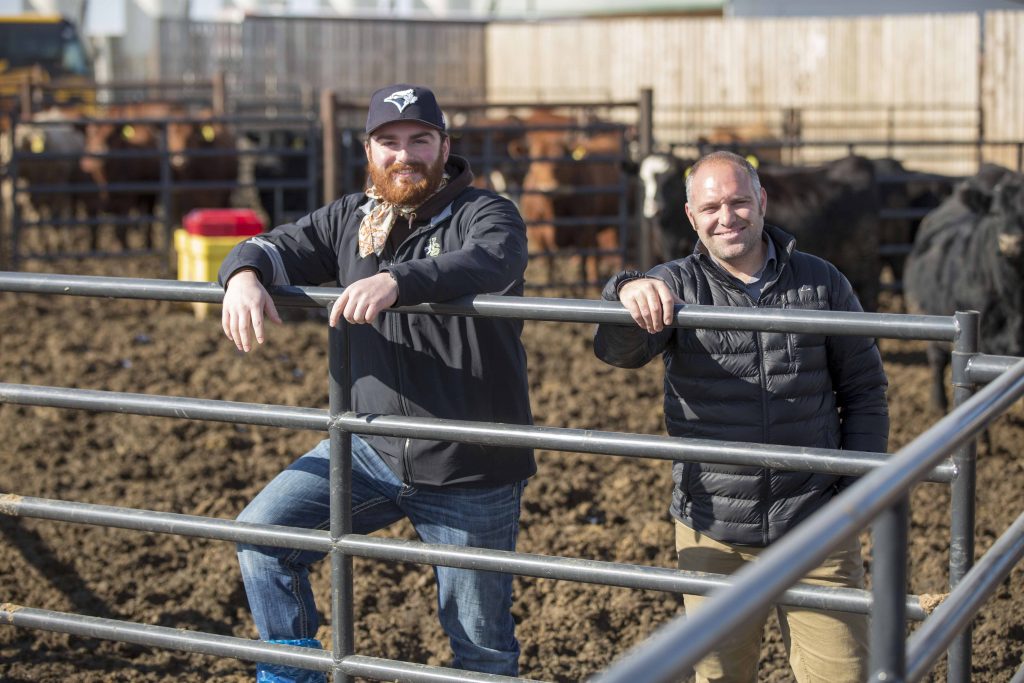
News
Research
Diseases
Environment Protection
University of Saskatchewan awarded nearly $7 million for livestock research
January 29, 2020 by Manure Manager
 Master's student Caleb Eidsvik and University of Saskatchewan cattle nutrition researcher Greg Penner at the Livestock Forage Centre of Excellence.
Master's student Caleb Eidsvik and University of Saskatchewan cattle nutrition researcher Greg Penner at the Livestock Forage Centre of Excellence. Twenty University of Saskatchewan projects have been awarded nearly $7 million through a joint federal-provincial government funding program through the Agriculture Development Fund to advance cattle, swine, and poultry research.
The funding program will help researchers improve health and safety for animals, reduce the environmental impact of livestock farming, and provide promising researchers of tomorrow with invaluable experience.
Karen Chad, University of Saskatchewan vice-president of research, says, “This stellar livestock research helps increase agriculture value-added revenue, grow our agri-food exports, and address climate change, while training tomorrow’s skilled workers in this sector.”
Funding includes $3.2-million for the management and operations of the University of Saskatchewan Livestock and Forage Centre of Excellence (LFCE). Seven of the 20 University of Saskatchewan research projects will be conducted all or in part at the LFCE, which has a mandate to improve the sustainability of the livestock and forage industries through research and education in five key areas: soil, forage and crop systems, cow management, feedlot operations, and alternative livestock including bison.
Projects announced Jan. 29 involving University of Saskatchewan animal health research include developing a universal vaccine for influenza A in swine, tracking antimicrobial resistant E. coli in chickens and testing for Salmonella dublin in dairy herds.
Livestock research projects with the potential to reduce environmental impact include using pea starch for swine feed, hybrid fall rye as a new forage source for beef cattle, strategies to address mineral nutrition in the face of poor water quality and reducing greenhouse gas emissions from cattle feedlots.
The funding commitment also includes $375,000 to support 10 undergraduate summer research projects per year over five years. Co-ordinated by Dr. Elisabeth Snead with help from Saskatchewan Ministry of Agriculture scientists, the projects provide doctor of veterinary medicine students with exposure to both research and hands-on experience working with food animals and other animals important in agriculture. The goal is to make students more comfortable and confident dealing with these species during their professional careers after graduation.